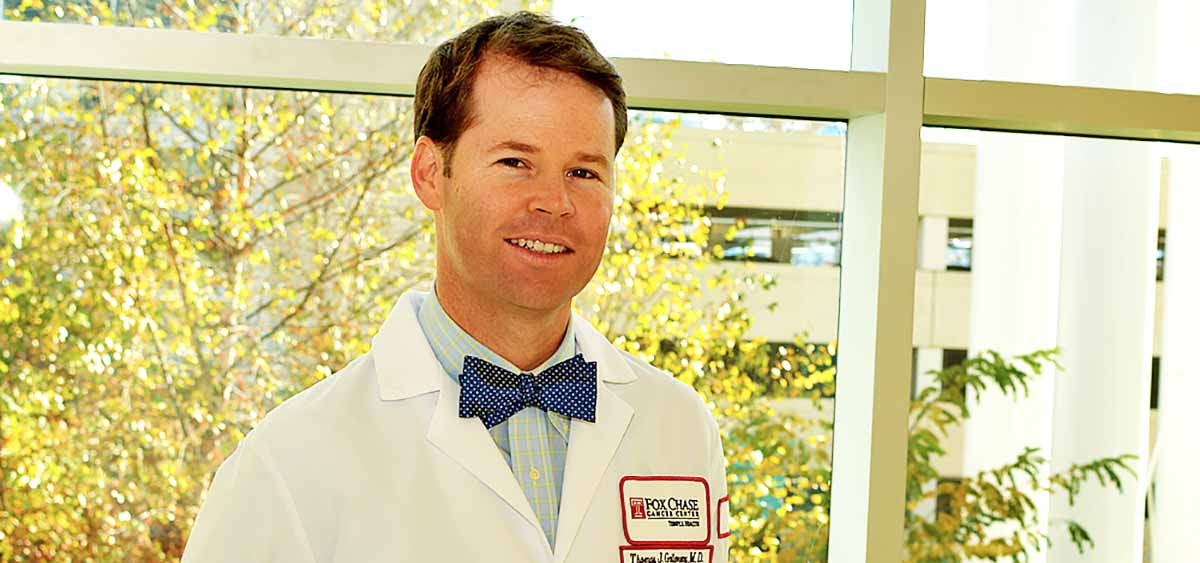
PHILADELPHIA (August 6, 2019) – Patients with squamous cell carcinoma of the head and neck (HNSCC) may not benefit from high-dose postoperative radiation as compared with standard dosing, according to new research out of Fox Chase Cancer Center.
Currently, adjuvant dosing of radiation therapy is often at the treating physician’s discretion, with doses ranging from as low as 57.6 Gy to as great as 70 Gy, according to Thomas J. Galloway, MD, associate professor from the Department of Radiation Oncology at Fox Chase.
“It is sometimes human nature to think that more is better, and the guidelines on the topic have a range of doses with no specific recommendation,” he said. “However, according to this data, there is no evidence to support routine dose escalation in the adjuvant radiation of head and neck cancer patients.”
In order to see if a specific group of patients with HNSCC benefited more from high-dose radiation than others, Galloway and colleagues queried the National Cancer Database for patients with nonmetastatic HNSCC diagnosed between 2004 and 2013 who underwent adjuvant radiation.
Standard-dose radiation was defined as an equivalent dose in 2 Gy of ≥56.64 Gy and ≤60 Gy, and high-dose radiation was an equivalent dose in 2 Gy of >60 Gy and <70 Gy. Patients with equivalent doses below and above the designated range were thought to have either inadequate or salvage therapy, respectively.
The study included 15,836 patients who received either standard-dose or high-dose radiation. Of those who received high-dose radiation, 14.3 percent received a dose >66 Gy.
Undergoing high-dose radiation therapy was associated with a 9 percent increased risk for mortality compared with standard-dose radiation.
Among a high-risk group of 3,291 patients with nonoropharynx or known human papilloma virus-negative oropharynx disease with positive margins, five or more positive lymph nodes, and/or extranodal extension, treatment with high-dose radiation conferred no survival advantage.
“Our study showed that no matter how we looked at the data, we could see no proof that survival was better with increased radiation,” Galloway said.
This finding demonstrates two things, according to Galloway.
First, when choosing between two radiation doses that lead to similar outcomes, logic would dictate selection of the lower dose to cause fewer side effects to the patient. Second, these data show that there is still an unclear picture of the best dose of radiation therapy to deliver after HNSCC surgery.
“This is something we should be looking into,” Galloway said. “It would be very intriguing to find out if there is a way to determine the best dose for each individual patient.”
The paper, “Examining Adjuvant Radiation Dose in Head and Neck Squamous Cell Carcinoma,” was published in Head & Neck.